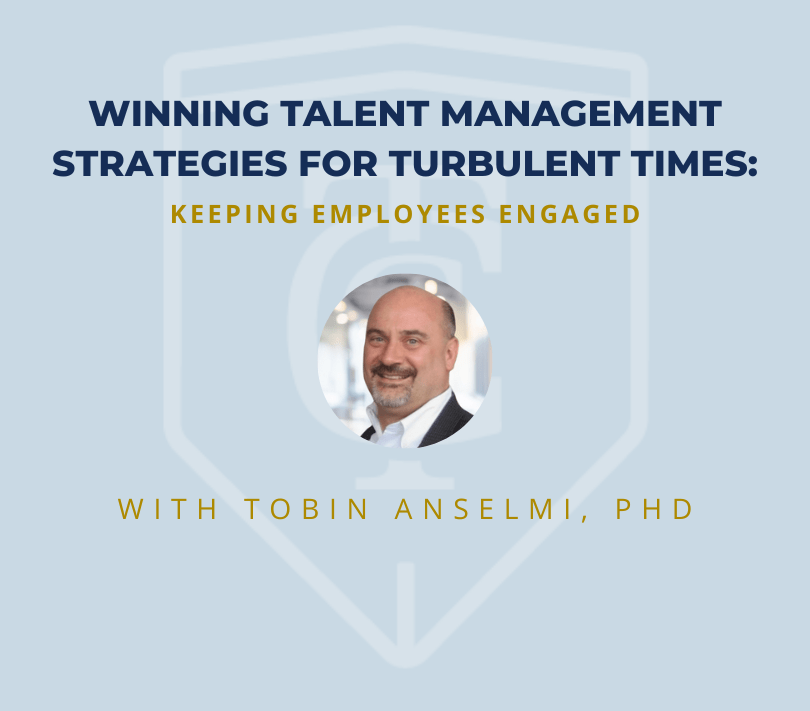
As an experienced Talent Management expert, I’ve seen how disruptive forces, economic uncertainty, geopolitical shifts, and rapid technological change, can test even the strongest organizational cultures. Today’s workplace is unrecognizable from decades past: hybrid models, AI integration, and evolving employee expectations have rewritten the rules of leadership, engagement, and retention. Drawing from decades of client work and the latest industry trends, here are seven strategies to help organizations thrive in turbulence while keeping employees motivated and connected.
The Context: A Disruptive Era
We’re navigating relentless change, economic volatility, talent shortages, and a workforce transformed by technology. Burnout is spiking, especially among younger professionals, while turnover remains a persistent challenge. Static talent management won’t cut it. Agile, people-first strategies are essential to engage and retain talent in this climate.
- Reframe Roles Around Skills, Not Titles
Shift from rigid job titles to a skills-based approach. Identify core competencies tied to business goals and structure work dynamically.
- Why it works: Employees gain flexibility and growth opportunities; organizations adapt faster.
- Example: Define roles by functions (e.g., “content creation” vs. “marketing manager”) to align strengths with needs.
- Action: Use AI tools to map skills and personalize career paths.
- Make Learning a Retention Tool
Growth is the new currency. Upskilling and reskilling are critical to keeping talent engaged.
- Why it works: Personalized learning shows investment in employees’ futures.
- Example: On-demand platforms and micro-credentials keep skills relevant.
- Action: Embed learning into workflows for seamless development.
- Use AI to Amplify Human Connection
AI isn’t here to replace people, it’s here to empower them. Automate the mundane to prioritize coaching and innovation.
- Why it works: Technology enhances, not erodes, relationships.
- Example: AI streamlines onboarding; sentiment analysis flags concerns early.
- Action: Leverage AI to listen and respond to workforce needs.
- Equip Managers to Lead with Empathy
Managers are your engagement engine, but they need support to navigate today’s complexity.
- Why it works: Strong managers build trust and performance.
- Example: 360-degree feedback and coaching boost team outcomes.
- Action: Train managers to foster psychological safety and clarity.
- Prioritize Holistic Well-Being
Employee experience is about feelings, not just perks. Flexibility and mental health support are non-negotiable.
- Why it works: A supported workforce stays longer and performs better.
- Example: Flexible schedules and resources reduce burnout.
- Action: Create feedback loops to act on employee input.
- Embed Inclusion for Belonging
Inclusion drives engagement and innovation. It’s more than a buzzword, it’s a foundation.
- Why it works: Valued employees bring their best.
- Example: Equitable growth opportunities build trust across all workers.
- Action: Ensure transparency in development and pay.
- Simplify to Focus
Less is more. Cut outdated processes to free up energy for what matters.
- Why it works: Streamlining boosts morale and productivity.
- Example: Audit talent processes to eliminate redundancies.
- Action: Prioritize connection, growth, and purpose.
The Path Forward: People-First Leadership
In turbulent times, resilience starts with bold, intentional leadership. These strategies; rethinking roles, investing in learning, enhancing connection with AI, supporting managers, prioritizing well-being, embedding inclusion, and simplifying operations, create workplaces where people want to stay and excel.
In my 30+ years, I’ve seen the best organizations don’t just survive change, they shape the future by putting people first.
About Tobin Anselmi
 Tobin Anselmi joined The Christopher Group Consulting Services Division in 2020 as a Managing Partner & Talent Management Practice Leader. Tobin holds a Ph.D. in I/O Psychology. Over the last 30+ years, Tobin has served as a consultant to organizational leadership on human capital management issues such as talent management (selection, performance management, development, and movement), organizational effectiveness, change management, and leadership development. He is direct, engaging, and result-oriented. His practical recommendations to organizational issues are grounded in years of experience developing and implementing solutions around the globe. To learn more about Tobin visit his bio page.
Tobin Anselmi joined The Christopher Group Consulting Services Division in 2020 as a Managing Partner & Talent Management Practice Leader. Tobin holds a Ph.D. in I/O Psychology. Over the last 30+ years, Tobin has served as a consultant to organizational leadership on human capital management issues such as talent management (selection, performance management, development, and movement), organizational effectiveness, change management, and leadership development. He is direct, engaging, and result-oriented. His practical recommendations to organizational issues are grounded in years of experience developing and implementing solutions around the globe. To learn more about Tobin visit his bio page.

